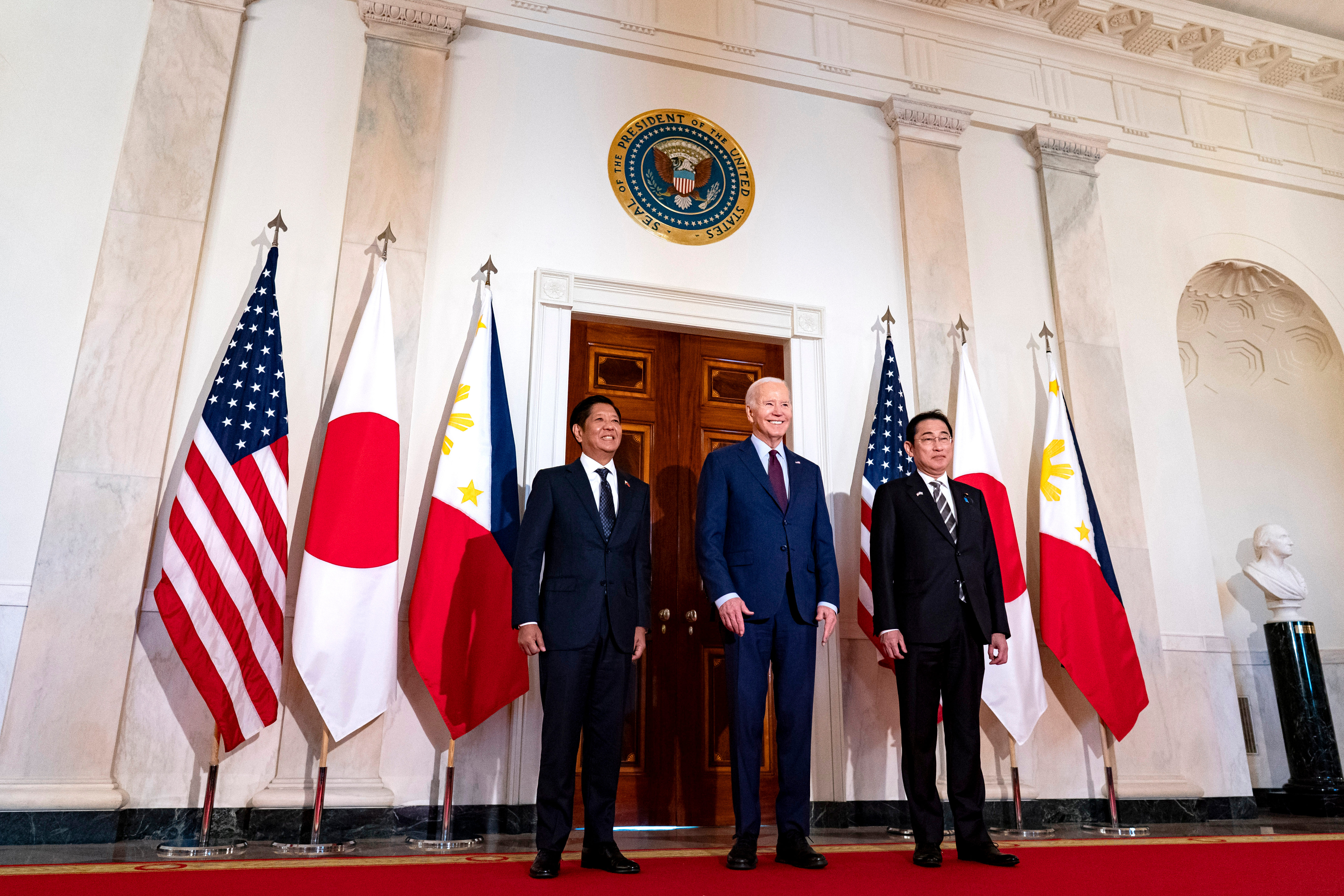
Visit Our Sponsors |
|
|
|
|
|
|
|
|
|
|
|
|
|
|
|
|
|
|
|
|
|
|
|
|
|
|
|
|
|
|
|
|
|
|
|
|
|
|
|
|
|
|
|
|
|
|
|
|
|
|
|
|
|
|
|
|
|
|
|

The U.S. plans to support infrastructure, semiconductor and nickel processing projects in the Philippines, as the long-time allies seek to grow investment partnerships after rekindling defense ties.
The initiatives, outlined in a White House fact sheet on Thursday, were announced as Philippine President Ferdinand Marcos Jr. visited Washington for his first trilateral meeting with President Joe Biden and Japanese Prime Minister Fumio Kishida.
The Philippines is bolstering economic ties with the U.S. as well as Japan at a time when Manila’s relations with top trading partner China have been strained by competing territorial claims in the South China Sea.
In a key collaboration, the U.S., Philippines and Japan committed to accelerate investments on the Luzon Economic Corridor, which will support connectivity between Subic Bay and Clark — two former U.S. military bases turned commercial hubs — Manila, and Batangas province in the country’s main island. Projects include rail and ports modernization, clean energy, semiconductor supply chains, agribusiness and civilian port upgrades at Subic Bay.
And in a boost to Marcos’s bid to grow the country’s downstream mineral industry amid growing demand for batteries and energy storage systems, the U.S. is supporting a grant to Eramen Minerals Inc. to develop an ore-to-nickel and cobalt processing plant.
Read More: Europe, U.K. Lag in Race for Electric Car Battery Raw Materials
United Parcel Service Inc. is set to expand its operations in Clark, with construction of a new hub expected to begin in February 2025 and be operational in late 2026, according to the fact sheet.
The Philippines, in a separate statement, said it welcomed a “strategic investment” by Ultra Safe Nuclear Corp. in developing micro modular reactors for the country.
The U.S. also plans projects at Philippine bases that the U.S. military can access under the 2014 Enhanced Defense Cooperation Agreement that was expanded last year to include four more sites including areas near Taiwan. Biden’s budget request for fiscal year 2025 includes an additional $128 million for infrastructure projects, the fact sheet said.
The United States Agency for International Development will also launch next year a humanitarian relief initiative at one of the sites for the Philippines’ civilian disaster response in times of crisis.
The White House also cited the increased cooperation between the U.S. and Philippines in the South China Sea to “historic levels,” including last Sunday’s military drills with Japan and Australia in the waterway where Beijing lays sweeping claims.
RELATED CONTENT
RELATED VIDEOS
Timely, incisive articles delivered directly to your inbox.


